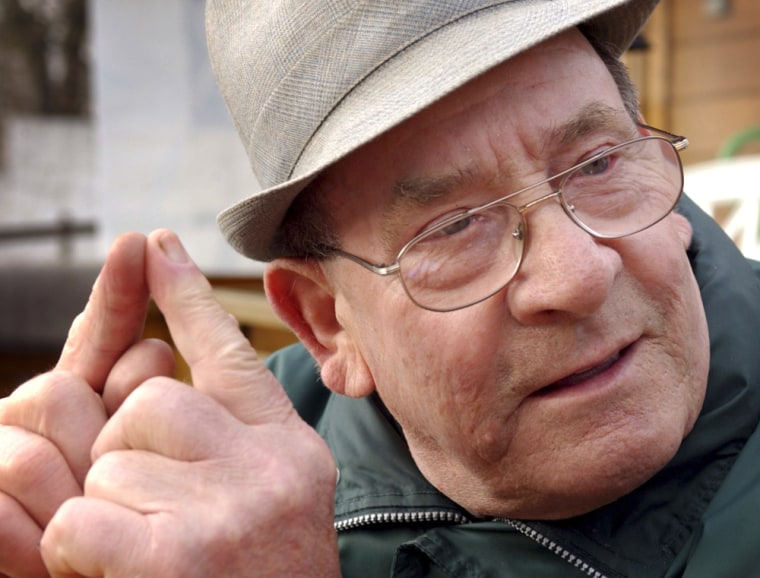A German court ruled Wednesday that an elderly former Nazi hit squad member is medically unfit to stand trial for the World War II reprisal killings of three Dutch civilians.
Defense attorney Gordon Christiansen told The Associated Press that Heinrich Boere, 87, suffered a serious heart condition and could not take the stress of a trial. He said Boere had "almost died" twice since being charged in April.
"This is absolutely based upon medical facts," Christiansen told The AP.
Aachen state court spokesman Georg Winkel said in a statement that the decision was based on a thorough two-day medical exam of Boere.
But the Simon Wiesenthal Center's top Nazi hunter, Efraim Zuroff, questioned whether Boere was truly ill and argued that if Boere had been pursued more vigorously earlier, his health would not have even been a factor.
"Boere has been living in Germany for decades and he should have been put on trial long ago," Zuroff said by telephone from Jerusalem. "This is a tragedy for the cause of justice."
Member of Waffen SS
Though Boere was sentenced to death in absentia by a Dutch court in 1949 — later commuted to life imprisonment — German courts have blocked attempts to extradite him or enforce the verdict here.
The AP reported last March that Dortmund prosecutor Ulrich Maass had quietly reopened the case by beginning his own investigation.
He brought charges against Boere in April for the World War II murders of three men in the Netherlands when he was a member of a Waffen SS death squad that targeted civilians in reprisal killings for attacks by the anti-Nazi resistance.
Maass refused comment on the Wednesday ruling.
The son of a Dutch man and German woman, Boere was 18 when he joined the Waffen SS — the fanatical military organization faithful to Adolf Hitler's ideology — at the end of 1940, only months after the Netherlands had fallen to the Nazi blitzkrieg.
After taking part in the invasion of the Soviet Union, he ended up back in the Netherlands, part of the Silbertanne, or Silver Pine, which was composed mostly of Dutch volunteers given the job of killing their countrymen in reprisal attacks.
The unit is suspected of 54 killings, and Boere admitted after the war while in an Allied prison camp that he took part in three slayings, according to Dutch court documents. After the war, he fled to Germany, where courts blocked attempts to extradite him or to enforce the Dutch verdict.
'It was work'
Maass reopened the case in 2006, relying heavily on statements to Dutch police preserved in the court file in which Boere details the killings, almost gunshot by gunshot.
Besides the police statements, Boere also gave an interview the Dutch Algemeen Dagblad newspaper in which he recalled slaying bicycle-shop owner Teun de Groot when he answered the doorbell at his home in the town of Voorschoten.
"When we knew for sure we had the right person, we shot him dead, at the door," he said in 2006. "I didn't feel anything, it was work. Orders were orders, otherwise it would have meant my skin. Later it began to bother me. Now I'm sorry."
The slain man's son, who has the same name as his father, was stoic when he heard the news that Boere would not go to trial.
"It's a shame, but we did our best," he told The AP. "I suppose he's lived a few years in fear."
More on: Nazi | Efraim Zuroff
